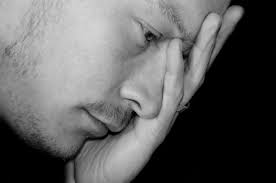Understanding our emotions
30 August 2020
“The heart has its reasons that reason knoweth not.”
- Blaise Pascal
The quote above from French thinker Blaise Pascal describes the immense power of our emotions and how our rational self often fails to control them.
That is often what brings people into therapy. They say, “I don’t know why I’m so angry/sad/anxious - it makes no sense.” They may sometimes add, “It’s just not me!” What they mean, of course, is the emotion does not match the ‘me’ they think they are or would like to be seen as.
So, emotions are important and therapy is sometimes criticised for being too focused on them. There’s the mocking stereotype of the therapist asking his client at every opportunity - “So, how does that make you feel?”
But I think the greater truth is that our feelings are often the way into understanding what is going on for us at a deeper level and frequently we are unaware, or only partly aware, of what we are feeling.
That may be particularly true for many men! As film maker Louis Theroux said recently: “Like a lot of men don’t know what I'm feeling half the time.”
 Therapist Sarah Van Gogh, looks at the importance of emotions in her book about working with men who have experienced sexual abuse*. She notes that: "Rather than turning us intoters of selfishness, being able to pay proper attention to how we feel and acknowledge those feelings to ourselves, enables us to take better care of ourselves and stop expecting someone else to attend to our emotional welfare for us.”
Therapist Sarah Van Gogh, looks at the importance of emotions in her book about working with men who have experienced sexual abuse*. She notes that: "Rather than turning us intoters of selfishness, being able to pay proper attention to how we feel and acknowledge those feelings to ourselves, enables us to take better care of ourselves and stop expecting someone else to attend to our emotional welfare for us.”
What this means is that when we can become curious about our emotions, enquiring what they are communicating to us, we can understand more clearly what needs we have that are not being met by our environment.help of a good therapist we can also become more aware of repressed emotions, such as anger or sadness. When these become more conscious we are less likely to act them out through, for example, passive aggression or depression.
We may also be able to link some of these deeper emotions to earlier experiences in our life. That is why it is important to reflect upon what we are feeling and its origins. When we are able to talk about wounding experiences in childhood we can begin a process of making peace with the past.
* Gogh, Sarah Van, Helping Male Survivors of Sexual Violation to Recover, 2018, JKP


